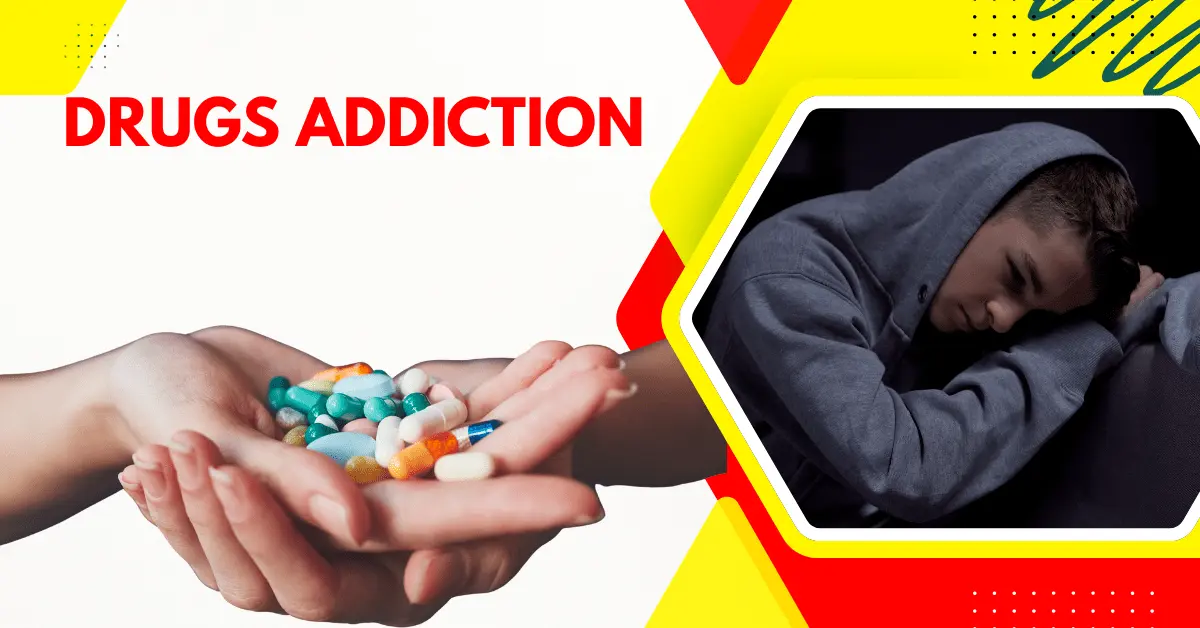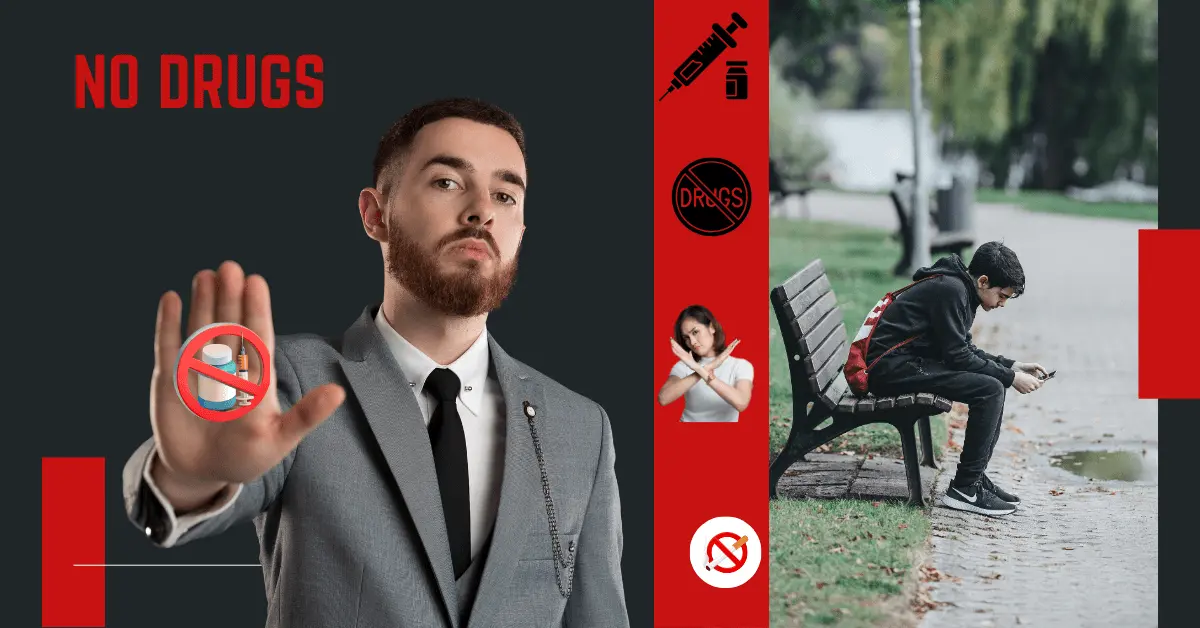Drug Abuse: Causes, Effects, Prevention, and Recovery for a Better Future
Published: 23/09/2025
Introduction
Good morning, respected teachers and my dear friends. Today I am going to speak on the topic of drug abuse, which is one of the most dangerous problems faced by students and society. In my speech, I will explain what drug abuse actually means, the main causes that push young people into it, the harmful effects it has on health, studies, and family life, and finally, the solutions we can follow to stay safe and create awareness. By the end of this speech, you will clearly understand why we must say no to drugs and work together for a healthy and drug-free society.

What is Drug Abuse?
Drug abuse simply means the wrong use of harmful substances. These substances can be alcohol, cigarettes, or illegal drugs like heroin, cocaine, and other toxic chemicals. Many young people start using them out of curiosity, peer pressure, or to escape stress. At first, they may think drugs give happiness or relief, but this is only an illusion. The truth is that drug abuse is like a slow poison. It weakens the body, damages the brain, and controls the mind.
Drug abuse is not just a personal mistake. It is a serious problem that affects families, schools, and society as a whole, causing widespread pain. When one student falls into this trap, parents suffer, studies are affected, and the future is put at risk. Instead of helping, drugs steal away dreams and replace them with fear, failure, and regret.
Why is Drug Abuse a Problem?
Drug abuse is a problem because it not only harm one person, but it also harms everyone around them. It destroys health, damages studies, breaks families, and weakens society. When a student uses drugs, they lose focus on education, their mind becomes weak, and their body suffers from serious diseases. Slowly, they move away from their goals and dreams.
The effects do not stop there. Families feel the pain of watching their loved ones suffer. Parents lose peace of mind. Society faces crime, unemployment, and broken relationships. In simple words, drug abuse steals the future of students and the strength of the nation. This is why it is not just a personal issue, but a problem we must all fight together.
Major Reasons for Drug Addiction
1. Peer Pressure
Peer pressure is one of the biggest traps for students. When friends are doing something wrong, it becomes difficult to say “no.” Many young people fear being left out, so they agree to try drugs. They think it is just for fun, but in reality, that “one try” can slowly pull them into addiction.
2. Stress and Anxiety
Life today is full of challenges. Students face exam pressure, family expectations, and sometimes financial struggles. In such moments, drugs look like an escape. They seem to give peace for a short while, but soon, stress comes back even stronger, leaving the person dependent on drugs for relief.
3. Depression
Depression is like a silent enemy. When someone feels empty, hopeless, or unloved, they look for comfort. Drugs appear to fill that space, but this relief is fake. Instead of healing depression, drugs make the mind weaker and the sadness deeper.
4. Curiosity
Curiosity is natural in youth. Many students think, “It’s just once, what harm can it do?” But drugs are not like trying a new game or hobby. Even one experiment can cause changes in the brain that lead to addiction. What starts as curiosity quickly turns into regret.
5. Lack of Awareness
Many young people don’t really know how dangerous drugs are. They believe myths like “it helps in studying” or “I can quit anytime.” This lack of knowledge makes them careless, and by the time they realize the truth, it’s often too late.
6. Easy Availability
Sadly, in many areas, drugs are sold secretly near schools, colleges, or even in local gatherings. When something harmful is readily available, resisting it becomes harder. Easy access means more chances of falling into the trap.
7. Broken Families
A strong family is like a shield. But when families are broken, when there are fights, neglect, or lack of care, children feel lost and alone. In search of love or comfort, some turn to drugs, not knowing they are choosing a path that will hurt them more.
8. Bad Company
There is a saying, “Show me your friends and I will tell you who you are.” If a student spends most of the time with people who use drugs, it becomes almost impossible to stay clean. Slowly, bad habits of friends become personal habits.
9. Media Influence
The media often glamorizes drugs. In movies, music videos, or on social media, drugs are sometimes shown as part of a “cool” lifestyle. Young minds absorb these false messages and start thinking that drugs are stylish or modern, when in reality they are deadly.
10. Lack of Self-Confidence
Low self-confidence makes students feel weak or unworthy. They may think drugs will make them bold, outgoing, or more accepted by others. But the truth is the opposite — drugs steal confidence, destroy self-respect, and leave a person even weaker than before.
Effects of Drug Abuse
1. Damage to Health
The first and most serious effect is on health. Drugs damage the brain, heart, lungs, and liver. A person may look healthy in the beginning, but slowly the body becomes weak and sick.
2. Loss of Concentration
Students who use drugs cannot focus on their studies. Their memory becomes weak, they forget things easily, and their performance in school or college drops.
3. Mental Illness
Drug abuse often leads to depression, anxiety, and even serious mental disorders. The mind loses balance, and a person feels trapped in sadness or fear.
4. Broken Families
Addiction does not hurt only one person. It breaks families. Parents cry, children suffer, and relationships are destroyed because of the pain caused by drugs.
5. Financial Problems
Drugs are expensive. Once addiction starts, people spend all their money on buying drugs. Some even steal or borrow money, which creates financial stress for the whole family.
6. Increase in Crime
Many addicts, when they cannot afford drugs, turn to crime. They steal, lie, or even harm others just to get money for their next dose. This increases crime in society.
7. Loss of Future Opportunities
Students with addiction lose golden chances in life. They cannot study properly, get good jobs, or build successful careers. Their future dreams are destroyed.
8. Social Rejection
Drug addicts often lose respect in society. Friends leave them, relatives avoid them, and slowly they feel isolated and alone.
9. Weakness of Character
Drugs destroy a person’s inner strength. Addicts lose self-control, honesty, and dignity. Their decisions are no longer wise, and they often regret their actions.
10. Early Death
The final and most dangerous effect of drug abuse is death. Overdose, accidents, and diseases caused by drugs often take away lives at a very young age.
Solutions to Fight Drug Abuse
1. Strong Family Support
The foundation of a child’s life is the family. When parents talk openly, listen with care, and guide with love, children feel secure. A student who feels valued at home is less likely to search for comfort in drugs. Even simple acts like having meals together or asking about their day can build a shield against addiction.
2. Spreading Awareness
Awareness is like light in the darkness. Many students try drugs simply because they don’t know how dangerous it is. Schools, colleges, and communities should organize awareness programs, workshops, and campaigns that clearly show the ugly truth about drugs. When knowledge replaces ignorance, curiosity fades away.
3. Healthy Friend Circle
Friends play a big role in shaping habits. If students choose friends who are ambitious, disciplined, and positive, they will stay motivated to achieve good things. A healthy friend circle protects against peer pressure because true friends never push you toward harm.
4. Stress Management
Stress is a reality of life, but the way we handle it decides our future. Instead of hiding behind drugs, students can manage stress through sports, exercise, reading, or even simple hobbies. These healthy activities give real relaxation and confidence, while drugs only give fake peace for a short time.
5. Counseling and Therapy
For those already struggling with addiction, professional help is essential. Counselors and therapists provide a safe space where addicts can share their struggles and learn coping skills. Rehabilitation centers guide them step by step, showing that recovery is possible and life can be rebuilt.
6. Strict Laws and Rules
When drugs are easily available, temptation grows. Governments need strict laws to punish sellers and stop illegal supply. Police, schools, and local leaders must work together to keep neighborhoods safe. Reducing availability means reducing chances of addiction.
7. Role of Teachers
Teachers are like second parents. They notice changes in students — falling grades, lack of interest, or sudden behavior shifts. By offering support, advice, and sometimes even strict guidance, teachers can stop a student from slipping into addiction before it’s too late.
8. Positive Use of Media
Media has the power to shape minds. Instead of showing drugs as “cool” in movies or songs, it should highlight the real damage they cause. Social media campaigns, TV shows, and even influencers can spread messages of health, fitness, and positivity. If media changes its role, many lives can be saved.
9. Building Self-Confidence
Students who believe in themselves rarely fall into addiction. Confidence gives the courage to say “no” when someone offers drugs. Schools and families should encourage talents, celebrate small achievements, and teach students that self-worth does not come from harmful substances.
10. Community Support
Fighting drugs is not just the duty of families or schools, it requires the whole community. Neighbors, social workers, leaders, and organizations must come together. If society stands united, it becomes harder for drug culture to grow. A drug-free community builds a safe future for everyone.
How to Recover from Drug Addiction
Recovering from drug addiction is a long journey, but it is not impossible. The very first step is to accept the truth. A person must admit, “Yes, I have a problem, and I need help.” Without this acceptance, no recovery can ever begin.
The next step is seeking professional help. Rehabilitation centers and counseling programs are designed to guide addicts in a safe and supportive environment. Here, trained doctors and therapists use medicines, counseling sessions, and positive activities to slowly break the chains of addiction. They don’t just treat the body, they also heal the mind.
Family and friends are like a lifeline in this journey. Their support, love, and constant encouragement give addicts the courage to keep fighting. When an addict feels that people believe in them, they start believing in themselves, too.

Healthy lifestyle changes also play a big role. Exercise, sports, reading, and creative hobbies replace the empty space drugs leave behind. These activities not only keep the body active but also refresh the mind, giving the addict a new purpose in life.
Most importantly, recovery needs hope. A person must see that their future can be brighter and healthier. When they are shown a positive path, they feel motivated to leave the darkness of drugs and step into a new, meaningful life.
Conclusion
Drug abuse is not just the story of one individual—it is a wound that hurts families, destroys friendships, and weakens society. We have explored what drug abuse really is, why people fall into this trap, and the painful effects it brings. But we also discovered that recovery is possible, and prevention is within our reach.
The fight against drugs is not only the responsibility of addicts; it belongs to all of us. Young people must learn to say no with confidence. Families must guide their children with care, open communication, and love. Schools and communities must spread awareness, create healthy activities, and protect youth from dangerous influences.
Every small action matters. Choosing sports over drugs, choosing a friend who motivates you instead of one who misguides you, choosing honesty over escape—these simple choices can save lives.
The message is clear: drugs steal your future, but you have the power to take it back. Let us stand together and build a generation that chooses life over destruction, health over addiction, and hope over despair. The time to act is now, because tomorrow might be too late.
Drug abuse means using harmful substances in a way that damages health, mind, and life. It is not just about taking drugs once, but making it a habit that controls your actions and decisions.
Most young people start because of peer pressure, stress, or curiosity. Some use drugs to escape problems, while others are misled by bad company or media influence.
Drug abuse destroys health, weakens memory, and damages future opportunities. It also creates distance in families, ruins friendships, and pushes society toward crime and instability.
Yes, recovery is possible with strong willpower and the right support. Rehabilitation centers, counseling, and family love play a big role in helping addicts start a new life.
Prevention starts with awareness and education. Families should give proper guidance, schools should spread knowledge, and communities should provide healthy activities while enforcing strict laws.
A supportive family can save lives. Open communication, care, and trust from parents give children confidence to say no to drugs and yes to better choices.
Because it does not affect only one person. It damages families, increases crime, reduces productivity, and weakens the progress of the whole society.

- Be Respectful
- Stay Relevant
- Stay Positive
- True Feedback
- Encourage Discussion
- Avoid Spamming
- No Fake News
- Don't Copy-Paste
- No Personal Attacks

- Be Respectful
- Stay Relevant
- Stay Positive
- True Feedback
- Encourage Discussion
- Avoid Spamming
- No Fake News
- Don't Copy-Paste
- No Personal Attacks




